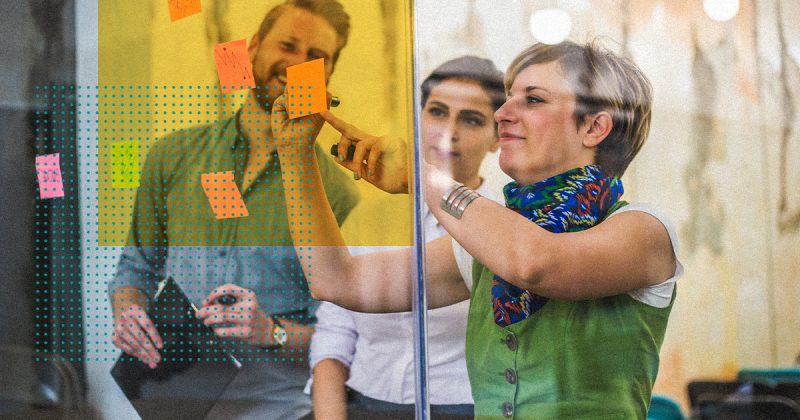Reports on a new research study are claiming remote meetings will hamper your creativity and it’s time to get back into the office to come up with great ideas. But how can this be true when, like so many other creative freelancers, I’ve found enormous benefits to working from home most of the time?
Published in Nature under the title “Virtual communication curbs creative idea generation”, the study put random pairs of volunteers together in person, or virtually to come up with creative uses for a product, and then choose their best example. This was done once with students, and then again with engineers. And in both cases, the teams came up with fewer good ideas than chatting face-to-face.
That all seems to make sense on face value, given that humans are social creatures and build trust and confidence quickly based on visual cues and physical interaction. But apparently, that’s not the reason for the drop in inspiration. It’s the impact of narrowing your focus on a screen which limits your thinking.
Now I’m not a scientist or psychologist. The study itself seems logical and robust. And I’ve always enjoyed chatting and collaborating with people in person when it’s possible and makes sense. So why do I have an issue with the findings and news stories?
The main problem is the definition of creativity, and how it occurs. When was the last time a client or colleague asked you to spend five minutes coming up with random uses for a frisbee? It’s famously used in job interviews, but to me it’s the equivalent of dismissing a Nobel prize winning scientist if they can’t answer 20 quickfire questions in a gameshow style.
In the report, Lennon and McCartney are referenced as examples of collaborations. But any musician will tell you that songwriters often bring half or full-formed ideas into the studio before sharing them with the rest of the band – including The Beatles. And it’s why as a writer, I’m sitting here with a Word document open, rather than inviting everyone I know to all type into a Google Doc for this article. I love having people build on what I’ve done, but let me work the idea into some kind of shape first.

And I can forgive academics for not often visiting offices. But I’ve created a reasonably stimulating home environment with shelves of books, artwork, some treasured photos and ornaments, and even a guitar next to my desk. Combine that with some music, and it’s more inspiring than the corporate meeting rooms where most brainstorms take place.
Or I can take a break and wander into the garden, or tackle some washing up and let my subconscious brain take over. Which is why you should keep procrastinating – although we do have some advice if it starts to get out of control.
The study ruled out social trust, interaction and behaviour as factors. And that’s going to be even less of an issue when you’re working with clients and colleagues over time, rather than being paired randomly with a stranger. But there’s a difference between focusing on virtual faces for five minutes during a test, and the experience most of us have with Zoom meetings. Who hasn’t checked their emails or their phones occasionally? Or found themselves zoning out after an hour?
As someone who enjoys working alone a lot of the time, I still like to meet and chat about ideas or problems with other people. But it works better when I can choose who I collaborate with, and the time and location. Give me a group of fellow freelancers, geeks and nerds at a local pub over a formal brainstorm in the office any day.
There were two findings from the study which definitely correlated with my own experiences over the last 20 years of working in creative fields. The first was that working in pairs outperformed larger groups, and the second was that the evaluation phase showed no differences whether it was conducted virtually or in-person.
And as a remote freelancer, that’s good news. I don’t have to go back into an office to find someone to bounce ideas off, and my clients will be able to judge them just as well over Zoom or Microsoft Teams, meaning the work will be just as good. That’s what we should really be taking from this study.






